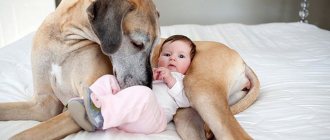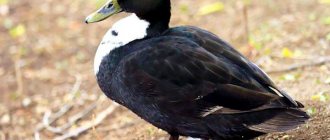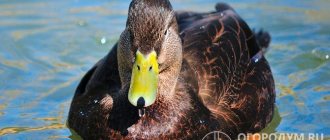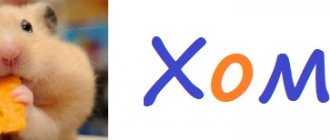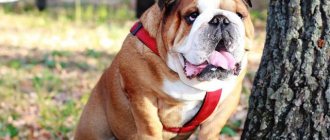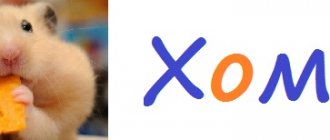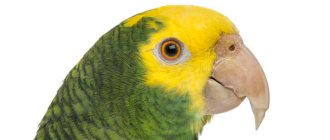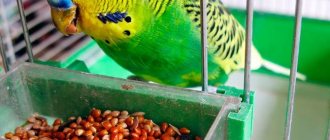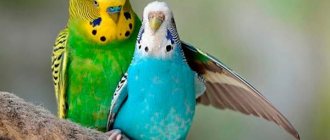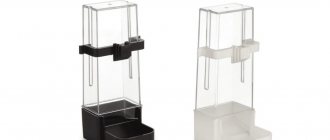Online magazine about parrots
Colors and patterns of budgies
We have translated and compiled for you a guide to the colors and patterns of budgerigars
Look
Popular article
Let's figure out how to choose a mate for a male or female budgie
2
Home › Food
A bird, like a person, needs a lot of water, with which the parrot quenches thirst, improves the functioning of the digestive system and removes toxins from the body. The condition of the skin and feathers of the wavy depends on the quality of water, and it also directly affects the normal functioning of internal organs.
Without good water, optimal metabolic processes are impossible, and immunity is also reduced. If the bird does not have free access to water throughout the day, this leads to dehydration, which causes constipation, deterioration of plumage and disease.
We will discuss in the article what kind of water is best to give to a budgie.
- The better to drink
- What not to drink
- How much does a bird drink daily?
- Are supplements needed?
- How often to change
- What problems arise Volnistik does not drink
- The bird drinks too much
- Wavy chokes while drinking
- Juices
The better to drink
Water, like food, must be of high quality, so it is not recommended to use regular tap liquid. It contains many harmful impurities that are dangerous for the body of a small bird.
Therefore, the following options are used:
- installation of a special water purification system in a house or apartment, and you can not only give the purified water to your parrot, but also drink it yourself without fear for your health;
- if a person buys special clean water for himself, then it can be given to his pet;
- It is recommended to buy purified water, which is sold in baby food departments, since it not only does not contain harmful components, but also contains useful substances;
- Boiled water should not be given, since after treatment at high temperatures, beneficial properties are lost and minerals are destroyed.
Experienced breeders recommend that owners add a small amount of freshly squeezed lemon juice to the water, which helps improve immunity, and lemon also has antiseptic characteristics.
Protection against bacteria
During the hot season, bacteria and fungi quickly multiply in the drinking bowl; greenish mucus can often be seen on its walls. To avoid poisoning your pet in the summer, it is recommended to refill the water bowl 2-3 times a day. It is also important to clean it regularly using a special brush (it can be replaced with a toothbrush).
Adding a few drops of lemon juice to the water can keep your parrot safe - it disinfects the liquid and prevents the growth of microbes. The high content of vitamin C will also have a positive effect on the bird’s immunity. In addition to lemon juice, you can use natural apple bite for disinfection - it should be diluted at the rate of 1-3 ml of vinegar per 100 ml of water.
Source
What not to drink
Tap water is harmful to birds as it contains a lot of chlorine and heavy metals. It often leads to poisoning, diarrhea and even intestinal diseases, as dangerous bacteria enter it.
Veterinarians strictly prohibit giving birds mineral water containing large amounts of acids and salts. Carbonated drinks should not be used as the gas is made using carbon dioxide and salt. Consumption of such components causes problems with the endocrine system and disruption of the digestive process.
Do you give your parrot fruit?
Not really
What does a parrot mean in life?
A parrot, like any other bird, needs a daily high-quality supply of water. It provides:
- quenching thirst;
- removal of toxic substances from the body;
- proper functioning of the gastrointestinal tract;
- optimal functioning of internal organs;
- delivery of oxygen to all cells of the body;
- normal brain function;
- proper metabolism;
- healthy appearance;
- increasing immunity.
Dehydration of the body leads to an imbalance of all its systems. The pet's appearance deteriorates: the condition of the skin and feathers changes. The bird becomes constipated. The mucous membranes of the mouth and eyes begin to suffer from dryness.
How much does a bird drink daily?
The amount of fluid you drink is influenced by many factors, including:
- air temperature and humidity, and in winter, due to the operation of the heating system, parrots often drink more than in summer;
- the amount of fruits, berries or vegetables that the bird receives daily;
- the activity of the wavy, since if it often flies out of the cage, then it needs more liquid than if it sits on a perch all day;
- the time during which the cell is exposed to direct sunlight.
In the warm season, birds need a lot of water. Breeders recommend making sure that there is always quite a lot of water in the drinking bowl, but not less than three teaspoons. Automatic drinkers are good because the parrot can drink as much liquid as he wants , and it is not contaminated with droppings, food debris or feathers.
Nutrition of budgerigars. What can and cannot be given.
Plant foods are the basis of nutrition (up to 70% of the diet)
Plant foods are divided into 2 groups – grain and succulent. Grains, in turn, are mealy (contain up to 6% fat) and oilseed (contain over 14% fat).
Succulent: various herbs, leaves, berries, fruits, roots and tubers. They contain a lot of water (from 40 to 90%), which causes a refreshing effect.
Grain feed Mealy feed
- Millet - 60% of the total amount of feed.
- Millet (millet without shell) - in the form of crumbly porridge.
- Oats - 20-40% of the total amount of feed, regular, unhulled.
- Wheat - 30-40% 2 times a week. In semi-ripe or sprouted form. To germinate wheat or barley grains, you should wash them and fill them with warm water. In the evening, the water is drained and the grains are washed in running water. Then fill it with water again and leave until the morning. Usually by this time the grains have sprouted and can be fed to the parrots.
- Corn - 20% of the total feed amount. May cause obesity, so don't give too much.
- Peas - Unripe raw or canned peas should not be given. Be sure to cook and steam it.
- Plantain and dandelion seeds - These should be prepared in advance. To do this, plantain spikelets are collected into bouquets and hung to dry. And seeds are collected from dandelions when white fluff appears on their heads.
Oilseed feed
- Sunflower seeds - no more than 15% of the feed. Very nutritious due to the high oil content. Therefore, you can’t give too much.
- Nuts - 5% 2-3 times a week. Very saturated with fat, excessive consumption can lead to stomach upset and obesity. Walnuts are very useful during the mating period.
- Hemp - No more than 5%. Before giving it to the parrot, it must be boiled for 10 minutes and dried.
- Flaxseed - 1-2% in the grain mixture. Very nutritious and medicinal. Good for the intestines. Its decoction is recommended to be given instead of drinking when coughing. Large amounts lead to diarrhea.
Juicy feed
- Carrots, carrot tops - Fresh, grated in small slices. Necessary in autumn, winter, during the period of feeding chicks.
- Cabbage - Chop finely, or give whole leaves. When feathering appears, it is advisable to give it every day.
- Beets - Raw, grated. Especially useful - winter-spring.
- Tomatoes - Only ripe fruits.
- Cucumbers - Promote feed absorption. In the form of slices.
- Sweet pepper - In the form of slices, without removing the seeds.
- Watermelon, melon, pumpkin - Helps improve digestion and heart function. The seeds are also useful. They are dried and crushed before serving.
- Apples, pears, bananas, plums, peach, apricot, kiwi, pineapple - Feed in slices, without seeds.
- Grapes - 3-4 berries per day.
- Oranges, tangerines, grapefruit, lime, pomegranate - Give by dividing into slices and peeling.
- Lemon - Add a few drops of juice to drinking water (protects against infections). Whole slices cannot be given.
- Inzhik, pumpkin, pattison, zucchini, zucchini with seeds, rutabaga, turnip.
Berries
What problems arise
Birds that do not have diseases or other problems eat well and need plenty of water. But sometimes owners notice that the bird drinks too much or refuses any liquid at all. This signals certain health problems.
Wavy doesn't drink
Birds cannot live without liquid, so they can drink in the absence of humans. Wavys get quite a lot of liquid from fruits, berries or greens, so if they are provided with a varied diet, then they do not need a large amount of ordinary water.
If the chick was purchased just a few days ago, then the refusal of fluid may be associated with stress and anxiety, so it is necessary to reduce the noise level and also keep other animals away from the cage.
Other reasons why a bird refuses to use a drinker include:
- incorrect choice of location for the product, so the wavy simply does not reach the water;
- the bird cannot understand how to use the automatic waterer;
- water is too hot or cold;
- the liquid contains many foreign impurities, so the bird does not want to drink it.
It is advisable to use warm water, the temperature of which is within 15 degrees.
The bird drinks too much
If the owner notices excessive thirst, this may indicate serious illness. Therefore, if such a symptom appears, it is recommended to contact a veterinarian for an examination. Timely detection of the disease allows the bird to be quickly treated without negative consequences.
The most popular health problems include:
- Lack of retinol . To replenish it, vitamin complexes and probiotics are included in the diet. Additionally, you will have to give the bird the right and high-quality food.
- Diabetes . The appearance of this disease is accompanied by severe thirst in the bird, so it is necessary to urgently contact ornithologists to prescribe treatment. Only a doctor can determine the correct treatment, which involves the use of lingonberry or ginseng tinctures. Home remedies include nettle decoction or strawberry syrup.
- Nephritis. This disease is caused by a lack of vitamin A and retinol. The consequence of such a deficiency is dehydration of the bird’s body. Usually the cause of this disease is an improper diet, so the bird does not receive enough vitamins and protein.
If treatment for nephritis is not started in a timely manner, the disease will become incurable, as irreversible changes occur in the kidney tissue.
Wavy chokes while drinking
If a bird chokes while drinking, then a person will not be able to help him. You just need to take the bird out of the drinking bowl and wait until she can cope with the situation with the help of snorting and sneezing.
A small amount of water may enter the nostrils . In a difficult situation in which the bird cannot recover from choking for several hours, you will have to contact a veterinarian.
Possible difficulties when watering parrots
Beginning bird owners often worry about the amount of liquid they drink. And for good reason. Since both small and abundant water consumption is a signal of a pet’s illness.
Read also
Waka food for parrots reviews
Drinks a lot
One of the symptoms of a parrot's endocrine system disorder is thirst.
Your pet probably has a pancreatic or kidney disease. This can be found out by examining an ornithologist. Vetom 1 is usually prescribed.
Diabetes
The disease is accompanied by excessive consumption of water. This is a signal to contact a veterinary clinic. After the examination, the doctor will make the correct diagnosis and prescribe a treatment regimen for your pet.
What kind of water can parrots
At home, the budgie is fed with tinctures of ginseng, lingonberries, fresh strawberry juice and a decoction of nettle leaves.
Nephritis
This disease is caused by a lack of retinol and vitamin A, which causes dehydration. Often occurs as a result of an incorrectly composed pet menu.
When a veterinarian diagnoses kidney inflammation, treatment with probiotics, infrared irradiation is prescribed, and a diet low in protein and a vitamin complex is determined.
As a rule, severe cases are incurable, since irreversible processes occur in the kidney tissues.
Doesn't drink
Know! Budgerigars are very small and their bodies do not require much fluid. However, a complete refusal of water should alert the breeder.
For those who have not seen how parrots drink.
This may be caused by the following factors:
- the bird needs enough fluid consumed naturally through vegetables and fruits;
- suffered shock, stress;
- moving to a new place of residence, incl. to another cell;
- inconvenient location or shape of the drinking bowl;
- water quality and temperature.
Sometimes the owner does not notice how and how much the bird drinks. It is necessary to carefully observe your feathered friend, as this will subsequently avoid many troubles.
Remember! The wavy fish cannot live without water for more than three days. If he looks animated and happily flutters around the cage, there is no need to worry. The bird simply adapts, gets used to its owners and new environment.
But if after three days the bird does not touch food or drink, immediately contact a veterinary clinic.
About drinking water for parrots
How long can a bird live without drinking?
A parrot's body temperature is higher than that of a human, so it is approximately 41 degrees. Normal heat exchange is possible only with the daily optimal amount of water. This is especially true when the diet consists of a large amount of dry food.
If the bird does not have enough fluid, this leads to serious negative consequences for the digestive system, which is why constipation occurs. If a bird gets a lot of fruits and berries, it can live without water for about a day.
If the owner is planning a trip, then he needs to use an automatic waterer or ask friends to update the regular liquid tank.
The importance of water in the diet
Parrots need moisture in the same way as all warm-blooded animals - a lack of it reduces the efficiency of transporting oxygen to the tissues. Parrots drink water frequently throughout the day, although in small quantities. Sufficient fluid intake ensures proper functioning of the body:
- the functioning of the brain and internal organs;
- removal of metabolic products and toxins;
- maintaining healthy skin and feathers;
- carrying out digestive processes.
With a lack of moisture, the functioning of all internal organs is disrupted, the condition of mucous membranes, skin and feathers worsens, and immunity decreases. Accelerated metabolism determines how long a parrot can live without water - this period lasts no more than two to three days. A dangerous factor will be the predominance of dry food in the diet, which requires additional moisture for digestion - in this case, a bird deprived of water may die within the first day. That's why it's so important to fill the water bottle every morning and check it before leaving the house.
Alternative
The owner can supplement ordinary water with various additives that increase the usefulness of the liquid. For this purpose, decoctions and juices are used, which can be vegetable or fruit.
It is forbidden to add sugar to your parrot's drink.
Juices
To pamper your pet, you can include smoothies in its diet . For this, only fruits and vegetables that are healthy for the parrot are used. You can mix several products using a blender. The resulting drink is diluted with plain water.
It is not recommended to use store-bought juices that contain preservatives, sugar or other harmful ingredients.
Decoctions
It is advisable to make them from medicinal plants, and they are useful for intestinal disorders. For this, chamomile tea is chosen, which additionally calms the bird.
Rosehip decoction is used to replenish vitamin C. During a cold, a decoction of willow bark is used. St. John's wort is suitable for strengthening the immune system. To calm a bird that is suffering from depression, black tea is chosen.
What kind of water to feed a parrot - select the quality and temperature
When deciding to get a parrot, most owners take the diet and living conditions of this exotic pet seriously. But few people pay enough attention to such a simple thing as drinking water. But an incorrectly chosen drinking bowl or poor water quality can lead to various diseases, even causing the death of a pet. To avoid mistakes, it is important to study the information in advance, determine what kind of water is best to feed the parrot and choose the right equipment.
Choosing a drinker
A drinking bowl is a must-have accessory in a wavy cage. It can be internal or external, and open or closed.
It is made of metal or plastic. The choice depends on the preferences of the breeder and the pet itself.
It is advisable to buy an expensive model that is closed on top with some kind of lid, which prevents water contamination.
Do not use cups made of copper, zinc or brass, as they oxidize when exposed to liquid.
What kind of water can you give your budgie?
When purchasing a budgie as a pet, you need to make sure that all the rules for keeping the bird are followed. Water is very important for any organism, and the parrot's body is no exception. The well-being and health of the bird depends on compliance with the drinking regime and the quality of water. It is important to know a few rules about what kind of water to give your budgie, what characteristics it should have, and how often it should be changed.
